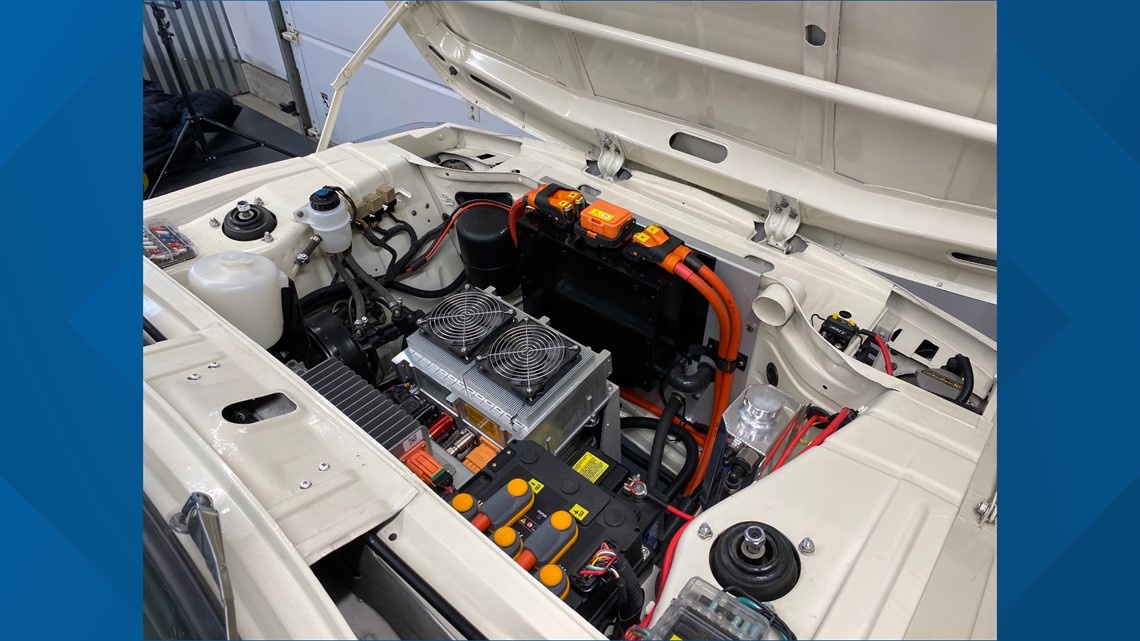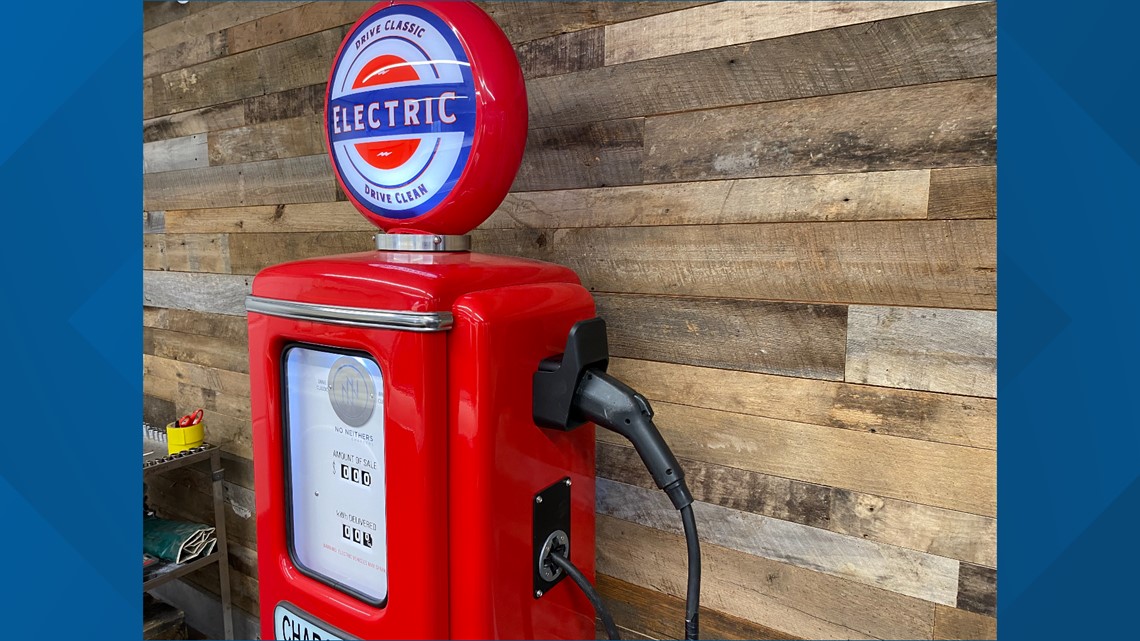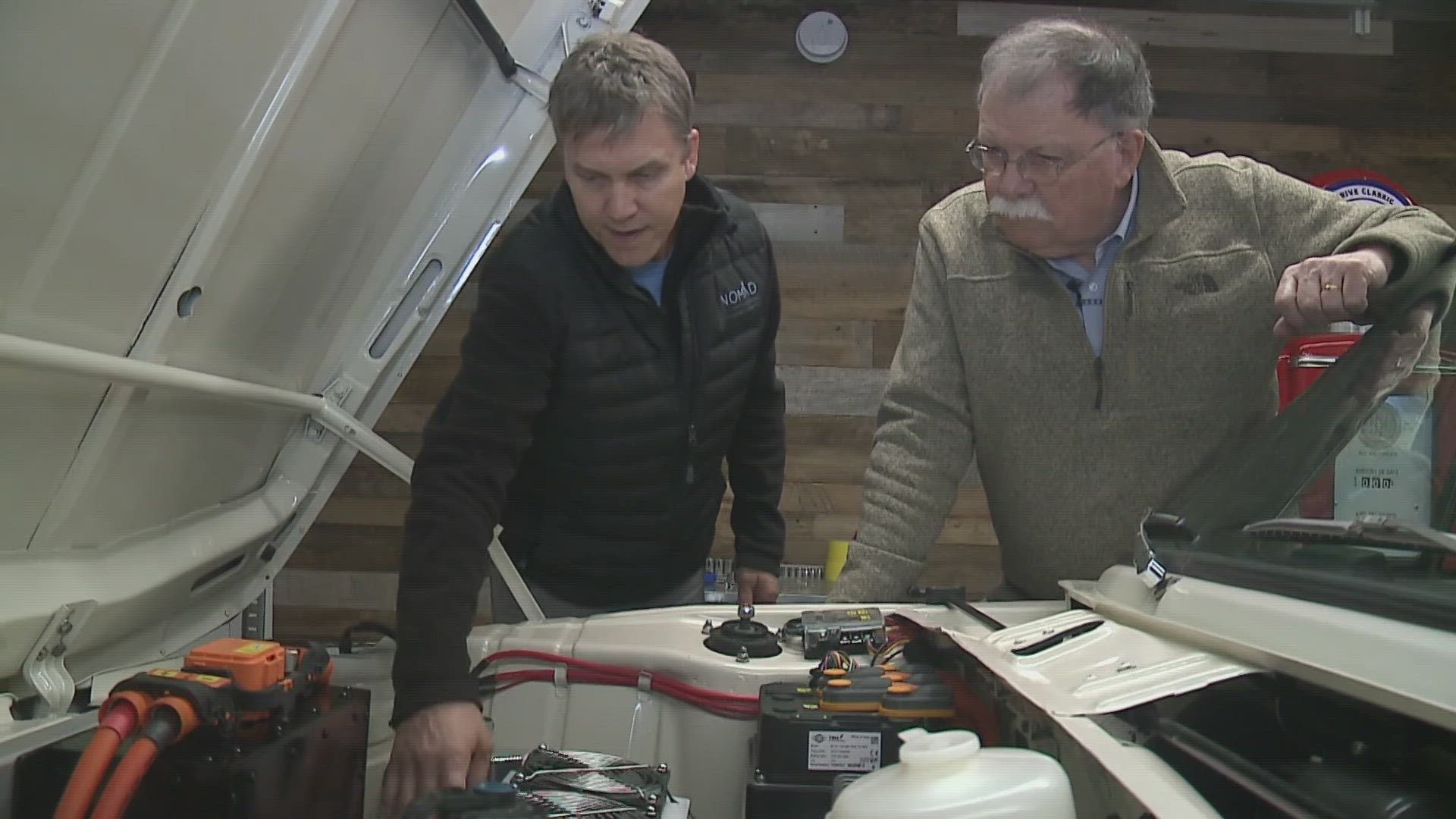DAMARISCOTTA, Maine — In the middle of a nearly spotless garage, the frame of the old Land Rover sits, looking stark and bare. The classic Land Rover body has been removed, and just about every piece of running gear is also gone, save for wheels and tires that hold the frame up.
It's ready for a new life, looking the same as ever, but powered by electricity instead of gasoline.
For Keith Warren, it’s a lovely sight.
"I love this part of it, because out comes the gasoline engine, and then exhaust, small components, fuel components, and pull all these parts out and set them in a pile. And it’s a big pile," Warren said, standing beside the frame.
The Land Rover is project number two for his new business, Nomad Motors, which converts classic, gasoline-powered vehicles to run on electricity.
"For me, it's about embracing the technology to keep these cars I love on the road and enjoyable to drive," Warren said.
"I love the idea that they’re clean and that they’re quiet, but in most cases will be much more powerful," he added.
Warren and his wife, Shannon Parker, said they have both loved classic old cars for years. Shannon herself drives an immaculate 1972 Chevy pickup.
The 1969 Land Rover, looking like it's ready for a safari, is also a model they have admitted they've loved for years, Keith said.
But the idea really began with their cream-colored, 2002 BMW. A great car to drive, Keith said, but mechanically a constant challenge.
"And that got me thinking: what would make this car feel like some other cars I’ve had and drive it all the time?" he said. "And I thought if it was electric…"
The couple has had a modern electric car for several years and currently drives a VW electric. Keith, an engineer, decided to design an electric motor and battery system for the BMW, then rolled the car into the shop and began to build it.
The concept grew to the point they decided to start a business doing such conversions. Last fall, Keith quit his paying job—"the hardest decision I’ve ever had to make"—to devote full time to the new electric car business, Nomad Motors.
"I thought about what I wanted to do for the remainder of my career, and I had to do this. And since I started I’ve never been happier or more motivated," he said.
The BMW is the first project and will be an example of what the business can do. Like the Land Rover, everything involving gasoline was stripped out along with the cooling system. All that remained were the transmission, driveshaft, and interior—though most of the seats had to be removed to run wires.
An electric motor now sits under the hood on a specially-designed mounting bracket, engineered by Keith to handle the torque the motor will produce. The heavy wiring for the power system runs from the trunk, where two remanufactured Tesla batteries have been installed.


The BMW is still waiting for one part for the recharging system, Keith said, then it will be ready to roll.
That prospect has Keith Warren’s attention.
"It's all I think about, first thing every morning and the last thing I think about at the end of the day."
He said there are some businesses in other parts of the country trying to do the same thing—converting classic cars to run on electricity—but believes he is the first in Maine and New England. He said he believes the market will be there for the new business.
"I think there’s a lot of consumer interest out there. I’m amazed whenever I talk to someone about this, amazed at how they raise their eyebrows and say that’s a really awesome idea."
Initially, at least, it's also a fairly costly idea. Keith said the parts, particularly the motor and batteries, are currently expensive. He estimated smaller vehicles, like the BMW, will cost around $50,000. Large ones, such as the Land Rover, he estimated could cost twice that.
However, those prices are in the same range as new Tesla electrics.
He added that new, less costly components coming into the market, and more refined designs, should help to drive prices down.
The electric classics still won’t be cheap, he says but should be within the reach of many collectors.
"I think there are a lot of people out there that are willing to spend the money on a beloved classic and want to be able to use it. So they are willing to spend the money so they can enjoy it for the next 20 to 30 years, without the usual mechanical headaches."
The couple is confident business will come.
They have bought land for a garage at Brunswick Landing, the former Navy base, and plan to locate the business there to eventually reclaim their own home garage.
They have a website explaining the business and inviting potential customers.
They’ve even developed an extra product: full-size replicas of old gas pumps, fitted with electric car chargers, for buyers to install in their own garages.


Excited as they are about getting the BMW on the road this spring and building the electric Land Rover, the couple isn’t waiting around for the next steps in the business.
A third classic car, a Chevy Camaro, is due back soon from the body shop so it, too, can begin conversion to a fast, electric-powered future.

